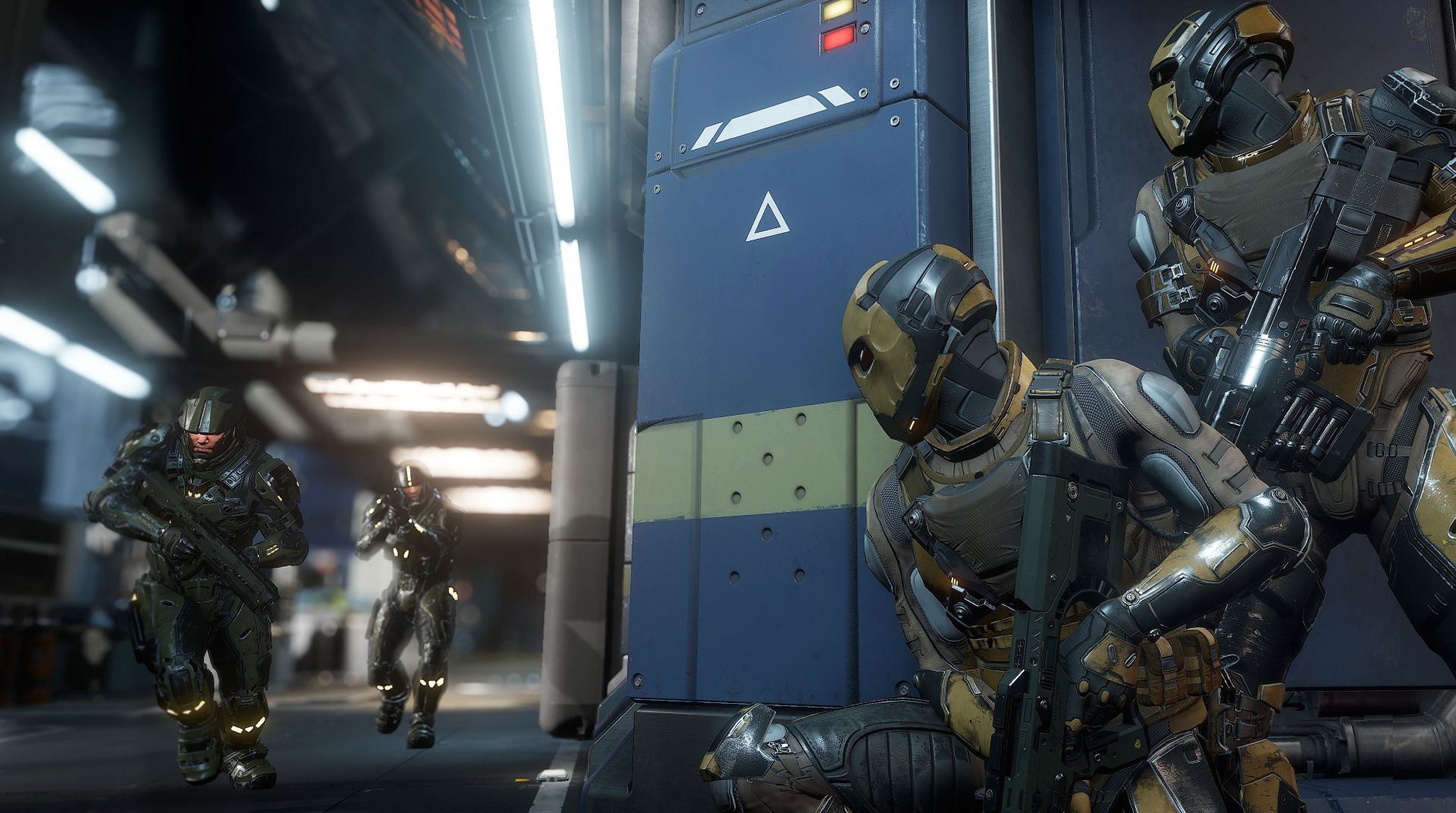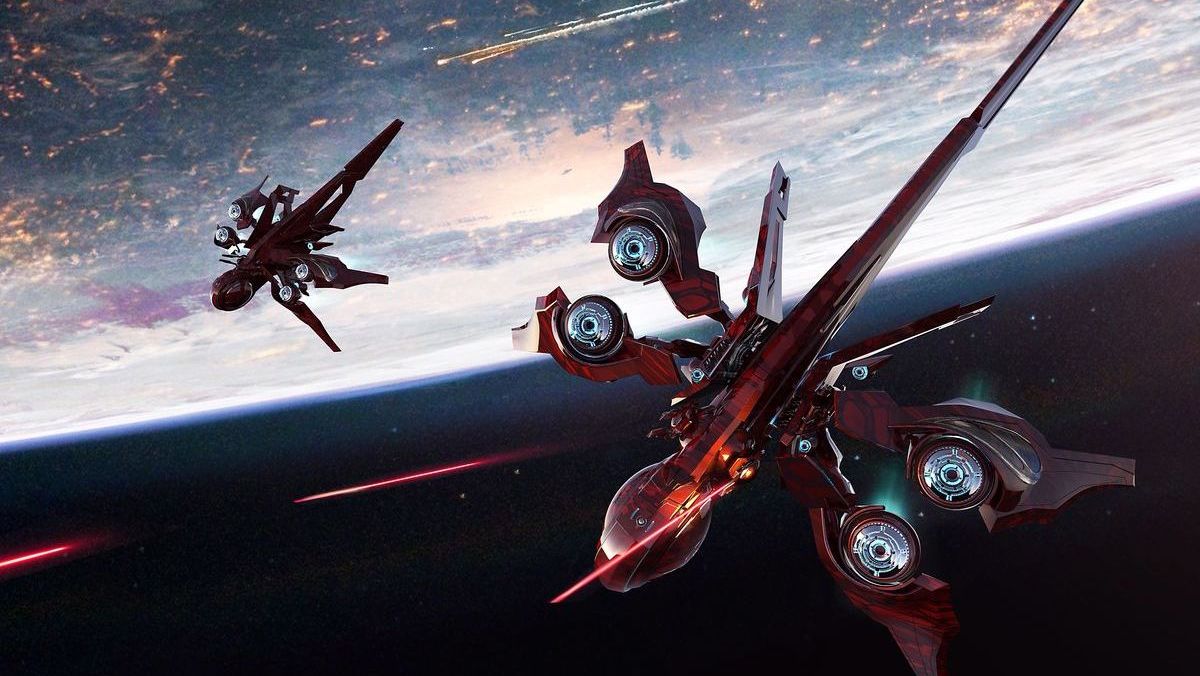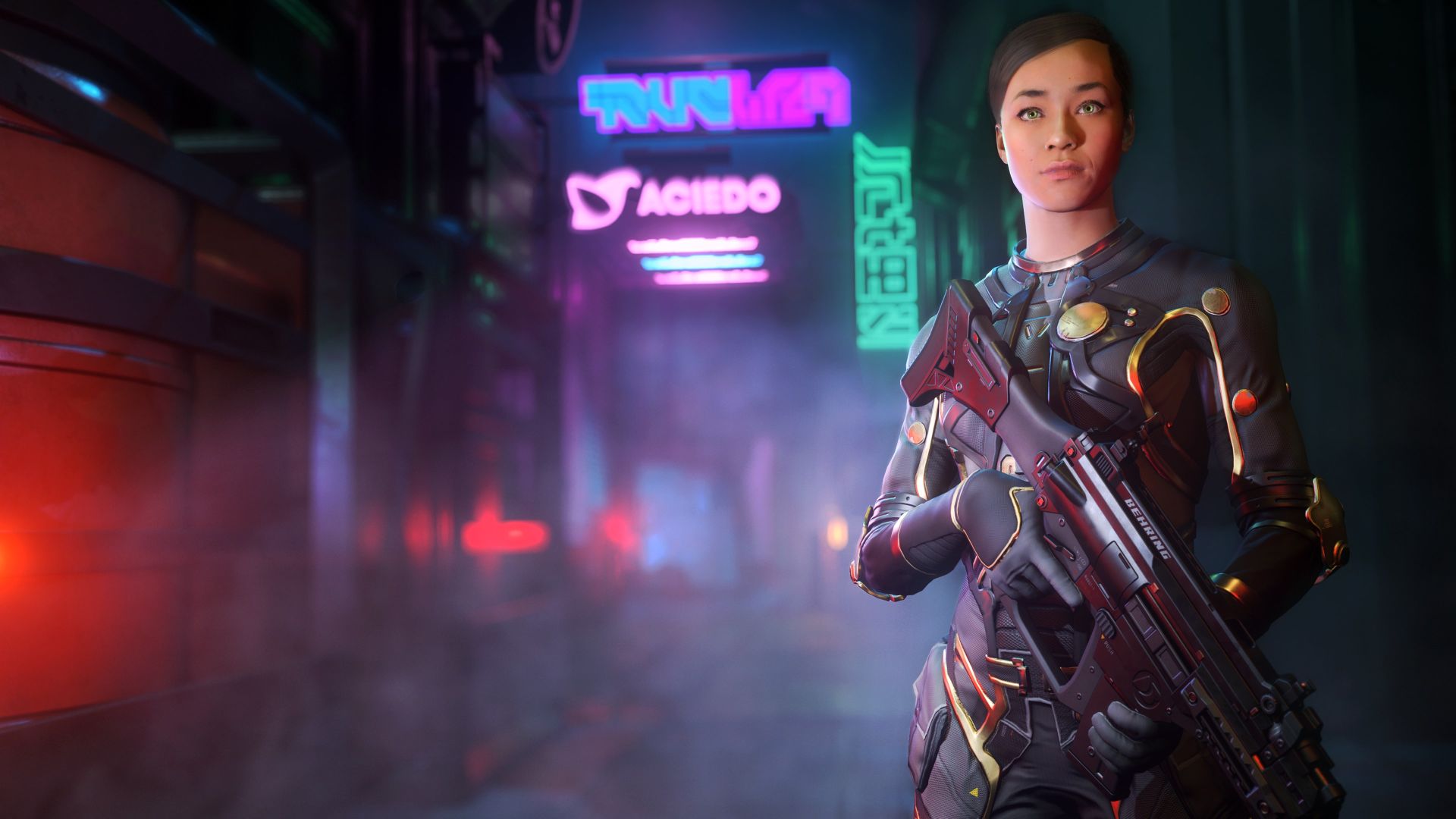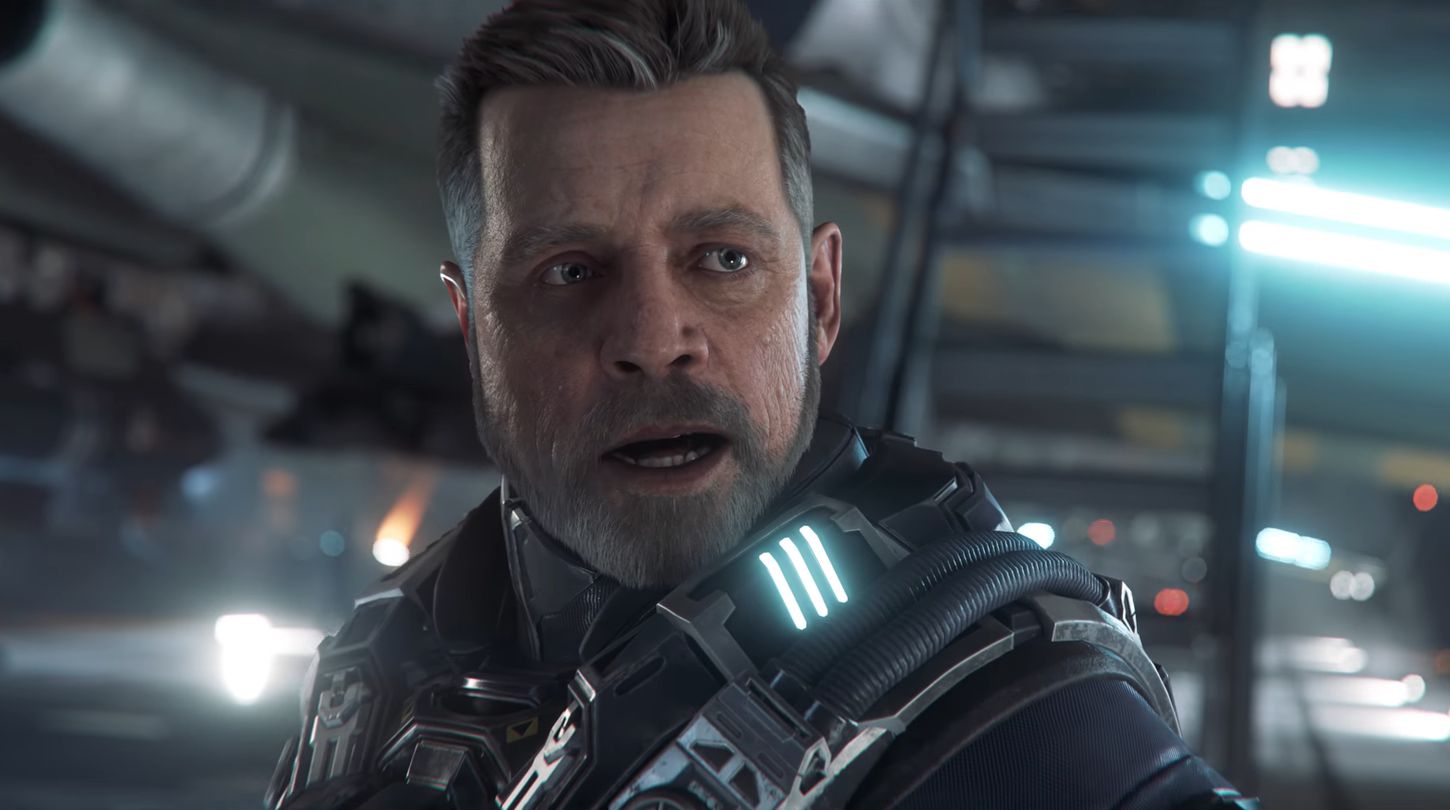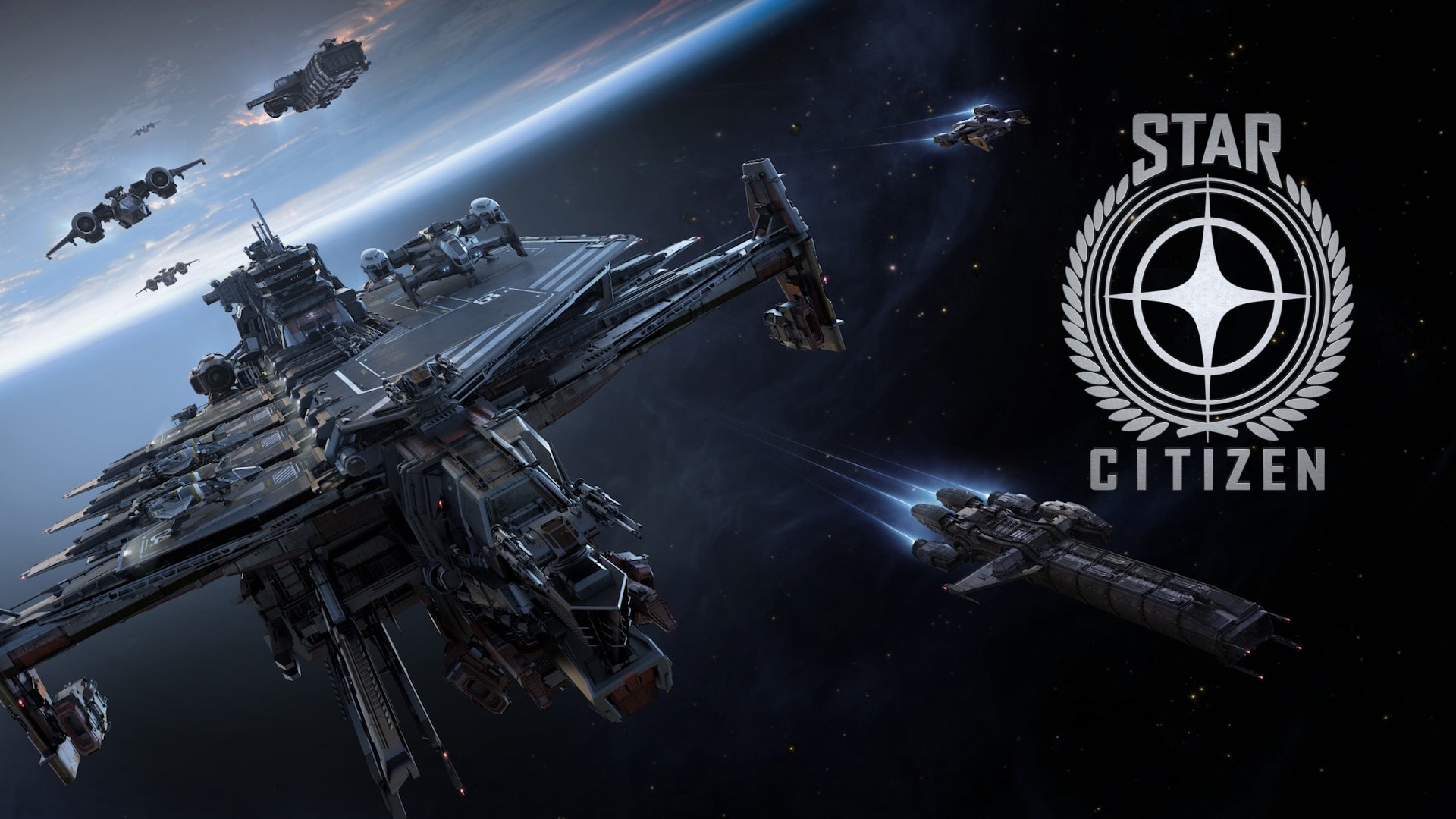
Star Citizen’s development time has become somewhat of a multi-faceted source of humor over the years. Due to the long development cycle, these have had the benefit of not being fully aware of the game’s current situation – because so much has changed – and yet, still extremely fitting for the same. It’s a paradox, a conundrum…almost like Star Citizen.
But all jokes aside, Cloud Imperium Games’ space sim is a fascinating study. It began with the promise of being a space sim unlike any other – a massively multiplayer online game where players could explore the universe, indulge in trading and piracy, and much more. With Chris Roberts of Wing Commander and Freelancer fame at the helm, it truly seemed like the space sim of many a genre fan’s dreams. Star Citizen began production in 2011 and subsequently launched a Kickstarter campaign in October 2012, initially amassing over $2 million.
Nearly 10 years later, crowd-funding for the game – which is now done through the sale of in-game ships – has exceeded over $444 million. The total number of “Star Citizens” is over 3.6 million but controversies have cropped up again and again. There is a decently sized portion of the community that’s satisfied with what the game has provided, even if there’s a ways to go yet. But the question remains – what exactly is the deal with Star Citizen? Why is it so controversial and what’s currently going on with it?
To answer that, we’d have to go back to the beginning. After its Kickstarter campaign concluded, Cloud Imperium committed to releasing Star Citizen in 2014. Alongside the Persistent Universe, which was the massively multiple online component, it would also release a cinematic single-player title called Squadron 42. The latter was developed by Foundry 42 under the supervision of Erin Roberts (Chris’s brother, who previously worked on Starlancer). With space combat and first person shooter elements, not to mention a star-studded cast that included Mark Hammill, Gary Oldman and Gillian Anderson, the scale of Squadron 42 was set very high. It’s also apparently going to have 70 missions for over 20 hours of gameplay…and this is only Episode 1. Subsequent episodes would be coming later.
From 2013 onwards, Cloud Imperium began releasing parts of the game that later came to be known as “Modules.” Hangar Module was first but it was Arena Commander in June 2014 that attracted the most attention. It offered ship combat and racing, though most had to play against the AI. Then there’s Star Marine, a first person shooter module that promised multiplayer modes and Zero-G. However, due to development woes, it would eventually release in 2016 and offered only two modes – Last Stand and Elimination – along with two maps at release.
Even throughout its initial years, Star Citizen saw its share of delays for numerous features (including Squadron 42, which we’ll come back to). It wasn’t long before some players started asking for refunds and while they would receive the same, Cloud Imperium would change its terms of service to prevent any further demands of the same. Now, refunds would only be granted if the project was abandoned, which hasn’t happened (contrary to popular belief).
However, in December 2015, the biggest and most significant module finally – the Persistent Universe. Leveraging the existing modules, players could finally explore the system, walking across four different planets and nine different moons. Zero G movement, a law system that would track criminal behavior among other players, procedurally generated biomes on planets – it was all available at last…with its share of technical and performance issues. Sure, it was rough but for many that had been along for the ride – and poured significant amounts of money, either through crowd-funding or purchasing in-game ships – it was a long time coming. Progress, as they say.
This isn’t to say that the controversies suddenly ceased, however. Before the Persistent Universe launched, anonymous and unnamed employees at Cloud Imperium spoke to The Escapist about development troubles in a report that’s since been pulled. A toxic work environment, racism, and concerns over the project’s massive scale were only some of the concerns that some had faced (with plenty of criticism levied at Chris Roberts himself). At the end of the day, Roberts officially stated that there was a “very strong vision for Star Citizen” and he had no doubt about what could be achieved.
Another major hurdle came from Crytek, which filed a lawsuit in 2017. It alleged that Cloud Imperium had used and modified CryEngine without its consent. In December 2017, Star Citizen was announced to be migrating over to Amazon Lumberyard. The continued use of CryEngine even with this fact was one of the complaints included in the lawsuit. As it turns out, however, Crytek provided the rights to CryEngine for use in Lumberyard as far back as 2016 to Amazon. The lawsuit was to be dismissed with $500,000 in legal expenses paid by Crytek but in February 2020, the two parties filed for a joint dismissal of the same with a settlement being reached.
The Persistent Universe continued growing through the years, becoming more stable and receiving some more features. Roadmap changes and delays became commonplace. In-game ships cost thousands of real money and continue to be a strong source of funding for development. An attempt to monetize the livestream for CitizenCon was met with significant backlash. Pay-to-win concerns arose following the removal of caps for United Earth Credits in August 2018 (because this being an MMOG, trade can be affected by such moves).
Roberts would dismiss these concerns, noting that there was no “specific win state” and that “you win by having fun, and fun is different things to different people.” “[It] isn’t some race to the top; it’s not like Highlander where ‘There can only be one!’—it is an open-ended persistent universe sandbox that doesn’t have an end game or a specific win-state.”
In that same year, one backer tried suing Cloud Imperium, having supported the game since 2012 and wanting their money back. Due to the changes in the terms of service, however, he would subsequently lose the lawsuit.
In 2019, another report came out from Forbes which talked about mismanagement, specifically about Roberts micromanaging things to an insane degree. Mark Day, a producer whose company was contracted to work on Star Citizen in 2013 and 2014, said, “As the money rolled in, what I consider to be some of [Roberts’] old bad habits popped up—not being super-focused. It had gotten out of hand, in my opinion. The promises being made—call it feature creep, call it whatever it is—now we can do this, now we can do that. I was shocked.”
One of the senior graphics engineers reportedly spent months at the behest of Roberts simply trying to nail the visuals of a ship’s shields. David Jennison, who served as lead character artist before quitting in 2015, reportedly worked on only five characters in 17 months. He noted that Roberts would often change approvals on characters but more importantly, “All the decisions for the character pipeline and approach had been made by Roberts. It became clear that this was a companywide pattern—CR dictates all.”
In March 2020, Cloud Imperium Games announced a change to its roadmap format. It noted that, “When we first embarked on this Roadmap journey two years ago, our goal was to make communication more transparent, specific, and insightful for all of you who help make Star Citizen and Squadron 42 possible.
While this goal remains unchanged, we’ve found that the format in which we’ve attempted to visualize our progress linearly does not match the approach we’re taking in the development of Squadron 42.” It noted that the roadmap “does not and cannot accurately represent development on a AAA chapter-based, story-driven game like SQ42.” So it sought to go back to the drawing board, creating something “more in line with our internal scheduling.”
Development progress would be shared in other ways but the idea was to offer more regular updates on Squadron 42. By this point, a beta was planned for Q2 2020. It would be delayed to Q3 2020 before Roberts declared in December 2020 that no gameplay would be showcased, nor a release date discussed “until we are closer to the home stretch and have high confidence in the remaining time needed to finish the game to the quality we want.” As you might imagine, many fans weren’t happy with this.
Another incident occurred in February 2021. Texas had faced several power troubles due to heavy snowstorms, which led to days of no heat or electricity (not to mention food and water shortages on top). Many studios based in the state had chosen to shut down. However, sources speaking to Kotaku revealed that Cloud Imperium expected employees to work through it at the studio (assuming “roads are clear”) or make up for it later, taking the time out of their vacation. On the surface, however, the company said that its staff’s “safety and well-being are a priority to us at all times” and reportedly offered flexible working hours.
However, the behind-the-scenes message was to figure something out, come what may. One source said, “In response to further expressions of concern, we were told to work directly with our managers for help. Yet, managers were facing the same crisis as the rest of us, and some lacked any method of communication for days.” Another source added, “I think people are just tired of how this company can be. It’s just about the money and not about their employees. They don’t really show they care when it matters most, and they have failed with this time and time again.”
In February 2022, Cloud Imperium would announce plans to significantly reduce the Release View of its progress tracker. This is because many features listed beyond the most immediate update would tend to slip to later dates (or abandoned altogether). Again, every time this happened, there was criticism because the project is almost ten years in development at this point and still not quite there yet. Cloud Imperium stated that the current state of the Release View “put too much attention on features that had a high probability of shifting around.
“It has become abundantly clear to us that despite our best efforts to communicate the fluidity of development, and how features marked as Tentative should sincerely not be relied upon, the general focus of many of our most passionate players has continued to lead them to interpret anything on the Release View as a promise.”
While it acknowledged that not everyone saw it the same way, “there still remains a very loud contingent of Roadmap watchers who see projections as promises. And their continued noise every time we shift deliverables has become a distraction both internally at CIG and within our community, as well as to prospective Star Citizen fans watching from the sidelines at our Open Development communications.” So going forward, anything beyond patches coming in the next quarter was removed.
So back to the original question – what is going on with Star Citizen? According to the Release View, patch 3.17 has a tentative Q1 2022 release date with new locations like Lorville Hospital and Space Station Clinics, AI “Vendor” behavior for the Coffee Shop in Area 18, and the addition of selling items to shops, ship-to-ship refueling and mining gadgets. Rivers will also be deployed within the Persistent Universe.
The last major update, released on December 23rd 2021, saw a new dynamic event “Jumptown 2.0” added to the Persistent Universe, along with a rework of Gravlev Physics and improvements to the Dying Star Map with new areas, cover options and assets added. And yes, in both cases, new ships are also included.
It’s hard to predict where Star Citizen goes from here. It’s endured through nearly a decade’s worth of rough development, controversies, major events and seemingly endless scope. When it will be “fully” done is hard to say but it remains an anomaly in the games industry. A project unlike any other that still promises to be the “ultimate” something, one update and several millions of dollars at a time. Regardless, it’s there and you’re either out or way too deeply in.








